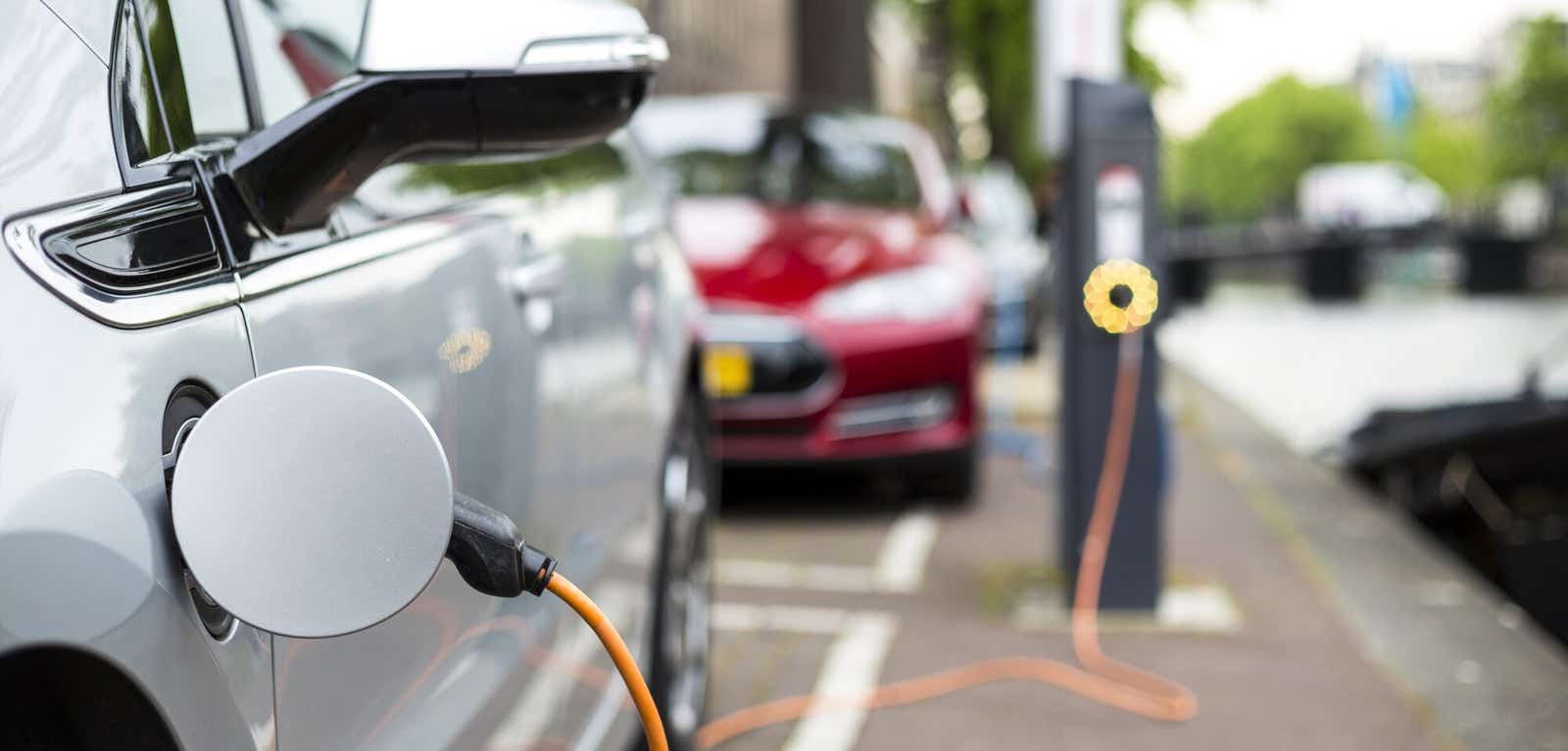At the end of last year electric vehicle registrations increased by 165% versus 2019, while plug-in hybrid sales were up 84%, indicating many of us are already keen to make the switch.
What are the benefits of owning an electric car?
Aside from reducing carbon emissions, there are a number of ways an electric car can save you money in the long run.
- EVs are cheaper to run. Electric cars cost around £2.00 per 100 miles, 141% less than the average petrol car, which costs around £11.60 per 100 miles.
- Councils and workplaces offer free or low cost charging benefits, reducing running costs even further.
- Electric cars are exempt from road tax and some plug-in hybrids receive an annual discount of £10.
Will my car insurance be higher if I purchase a hybrid or electric car?
There are a number of things that affect the cost of your car insurance, but will an electric or hybrid model be more expensive?
While it’s previously been difficult for young drivers to secure low-cost car insurance, as electric cars sales are rising, premiums are starting to fall. However, a report from Vantage Leasing suggests that electric car drivers could still be paying higher premiums than those who drive a petrol or diesel vehicle, due to the high costs of models and repairs.
A lot of new electric and hybrid vehicles come with high price tags, so if you’re considering a more eco-friendly car, we recommend getting some quotes beforehand, as you could be faced with a higher insurance premium.
When considering the insurance group of your vehicle, insurers also assess ease of finding a professional qualified to repair the model and the cost and availability of parts.
Currently just 1 in 20 mechanics are qualified to repair and service electric vehicles, this number is set to rise, with automotive employers quickly adapting to the demand.
Alongside this, insurance providers consider whether there’s an increased risk of an accident. This takes into account that driving an electric or hybrid car can feel different than driving a petrol or diesel car. Most electric vehicles have silent acceleration, which could be dangerous if other road users are distracted.
“With so much uncertainty around the cost of electric vehicles, it’s no surprise that motorists are concerned about their car insurance premiums rising. Some electric vehicles are more expensive to insure due to the cars' higher purchase price, the need for specialist equipment and repairs, and a lack of data on driver behaviour.
"It is predicted however, as more drivers make the switch to electric, that the insurance market will undergo a degree of correction, and as a result, premiums will eventually fall, making EVs and Hybrids more accessible to a range of drivers.”
Do I need specialist insurance if I purchase an electric vehicle?
While you do have the option to take out a dedicated electric vehicle insurance policy, as sales rise, many mainstream providers are starting to offer EV and hybrid policies, making it easier to find the best cover.
To help drivers manage the cost of an electric car, manufacturers such as Renault and Nissan provide the option to buy the vehicle and lease its battery separately.
If you lease the battery, your provider may offer separate insurance in case of accidental damage or theft.
You can also take out insurance for portable charging cables, which will cover you if your cables are lost, damaged or stolen when stored in your car or in use at a designated charging location. Finally, there’s legal liability which will cover you if someone accidentally trips over your charging cable during charging.
Which electric vehicle is the cheapest to insure?
Premium cost is based on a wide variety of factors, but recent research has revealed that some electric models are much cheaper to insure than others.
An analysis from Honest John in 2020 suggests that the Renault Twizy is the cheapest electric car to insure overall, with the lowest quote currently around £462 for a 45 year old and £1407 for an 18 year old. It meets the criteria for the UK’s lowest insurance group (10), which means it’s within the ‘low-risk’ vehicle group.
The Volkswagen E-Up is also a good choice for those looking to keep costs down, along with the Smart Forfour Electric Drive Prime Premium, the Renault Zoe, and the Kia Soul.
Which electric vehicle is the most expensive to insure?
On the other hand, the Tesla Model S is amongst the most expensive to insure due to its high value and expensive car-parts. It’s in the highest and most expensive car insurance group (50), which also includes the Ferrari F340 and Maybach 62.
How can I save money on my electric vehicle insurance?
There are a number of things you can do to help lower the cost of your premiums, regardless of whether your car is petrol or diesel, electric or hybrid. These include:
- Reducing your miles: the less you use the car, the lower the risk of being in an accident.
- Adding a named driver: If you’re under the age of 25 or have previous driving convictions, adding an experienced named driver to your policy could help lower the cost.
- Pay up front: If you can afford to pay the annual cost upfront, you could save 20% or more, depending on your provider.
- Increase your excess: If you’re willing to pay more in excess, providers are more likely to reduce your premium.
- Don’t auto-renew: make sure you’re shopping around for the best deal before renewing your car insurance policy
Do you have more questions on electric vehicles? Take a look at the UK’s most Googled questions on electric and hybrid cars.
Sources
https://www.smmt.co.uk/vehicle-data/evs-and-afvs-registrations/
https://vantage-leasing.com/blog/what-you-should-know-about-electric-vehicles
https://www.honestjohn.co.uk/insurance/lowest-insurance-group/lowest-insurance-group-electric-cars/
https://www.uswitch.com/car-insurance/top-10-tips-for-cutting-the-cost-of-car-insurance/

